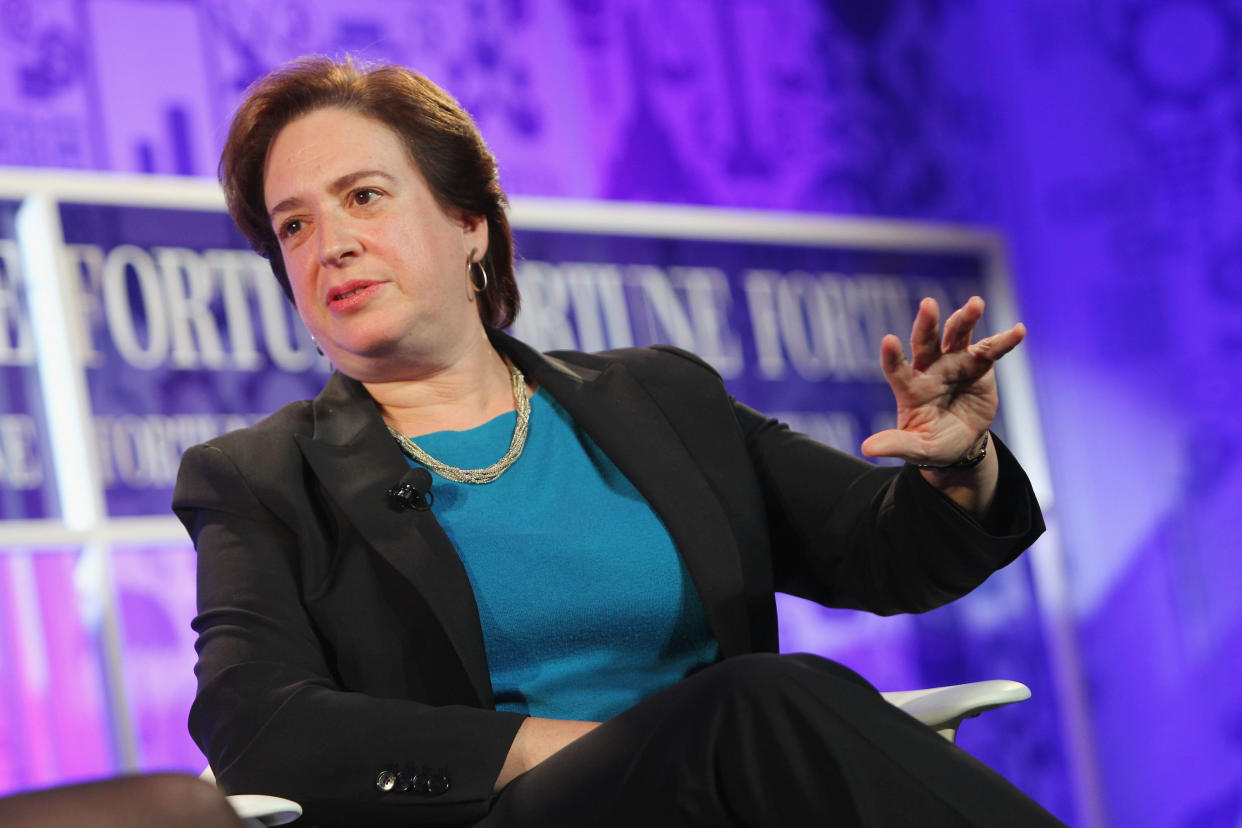Justice Elena Kagan Says The Supreme Court Turned The First Amendment 'Into A Sword'

The Supreme Court ruled 5-4 Wednesday in Janus v. AFSCME Council 31 that public-sector workers cannot be required to pay fees to the unions that represent them. Decided by the court’s conservative majority, the ruling upends a 40-year-old legal precedent at the foundation of thousands of union contracts across the country ― a drastic reversal that did not sit well with Justice Elena Kagan.
Kagan’s dissent, in which she was joined by Justices Ruth Bader Ginsburg, Stephen Breyer and Sonia Sotomayor, was a withering critique of the majority’s willingness to overturn the precedent set in an earlier landmark case. She also said her right-leaning colleagues turned the First Amendment into “a sword” used to influence politics and the economy.
“Rarely if ever has the Court overruled a decision ― let alone one of this import ― with so little regard for the usual principles of stare decisis,” Kagan began her dissent, referring to the legal principle of deferring to earlier court rulings.
The Janus case revolved around the concept of union “fair share” fees. Unions by law have to represent all the workers in a particular bargaining unit, even those who may not want a union. Because the representation costs money, unions try to negotiate contracts that require every worker in the unit to chip in. Hence, the introduction of fair share fees, without which many workers would stop supporting the union despite continuing to benefit from it.
The court ruled in the 1977 case Abood v. Detroit Board of Education that fair share fees were constitutional. The conservative wing of the court, in a decision penned by Justice Samuel Alito, ruled Wednesday that the justices got it wrong in Abood. As a result, millions of public-sector workers will now have the choice to stop paying fair share fees, delivering a severe blow to organized labor and, by extension, progressive politics.
Kagan believed the majority had no grounds to do it.
“Any departure from settled precedent (so the Court has often stated) demands a ‘special justification—over and above the belief that the precedent was wrongly decided,’” she wrote. “And the majority does not have anything close.”
As Kagan explained, the concept of fair share fees is “deeply entrenched” in public-sector work. Unions and local governments negotiated contracts on the basis that such fees were constitutional. By banning them, Kagan wrote, “the majority undoes bargains reached all over the country. It prevents the parties from fulfilling other commitments they have made based on those agreements.”
But she reserved her harshest words for the way in which the Abood precedent was struck down, through a First Amendment argument.
Mark Janus, the Illinois child support specialist who brought the case, argued that the fair share fees he was required to pay amounted to “compelled speech.” Under his argument, public-sector unionism is inherently political, because the things unions bargain over ― wages, health care and other benefits ― impact the use of taxpayer dollars.
So even though no worker can be forced to pay for a union’s political campaigns or donations, Janus claimed that the collective bargaining itself was a political matter ― and thus he can’t be forced to fund it.
As Kagan noted, 28 states are “right to work” and do not allow fair share fees, while 22 states are not “right to work” and do allow them. The Janus ruling, she wrote, essentially makes the decision for local governments by banning them, “and it does so by weaponizing the First Amendment, in a way that unleashes judges, now and in the future, to intervene in economic and regulatory policy.” She went so far as to call the majority “black-robed rulers overriding citizens’ choices.”
“The First Amendment was meant for better things,” she concluded.
Love HuffPost? Become a founding member of HuffPost Plus today.
This article originally appeared on HuffPost.

